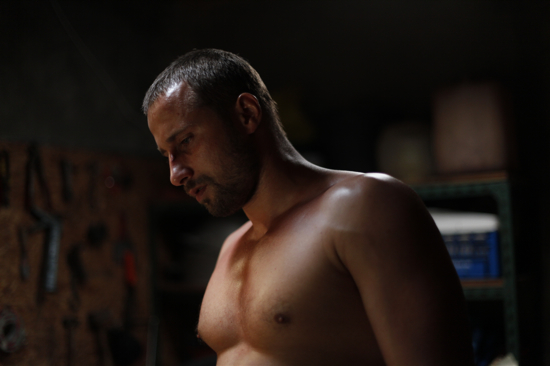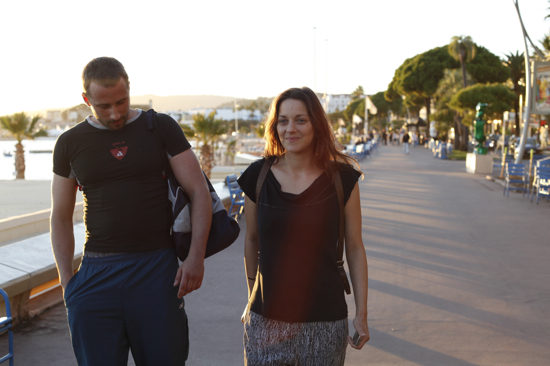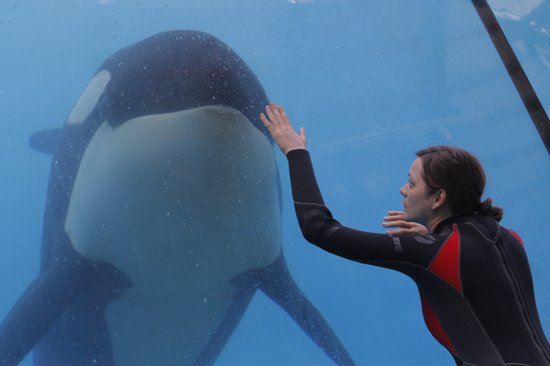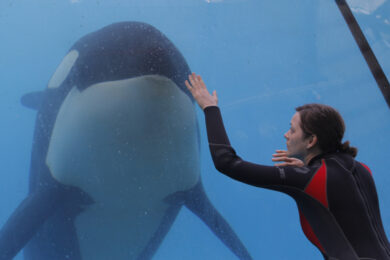After the great success and critical acclaim of A Prophet (2009), not to mention the sheer brilliance and artistry of his previous features The Beat That My Heart Skipped (2005) and Read My Lips (2001), Jacques Audiard’s eagerly anticipated latest was always going to be a big deal. Like such fellow contemporary auteurs as David O Russell and Alejandro Amenábar he may not produce much, but what Audiard does make is always well worth watching, even if you don’t quite like it.
Rust And Bone, loosely adapted from Craig Davidson’s short stories, follows the lives of two very different people from contrasting worlds. Ali (Matthias Schoenaerts) is a blunt, pugilistic and restless man down on his luck, who has travelled from Belgium to Antibes to live with his sister Louise (Céline Sallette). A typically Audiardian study of masculinity in crisis, we first see him in wonderfully telling montage wandering with his five-year-old son Sam (Armand Verdure) amid a destitute landscape of decay and rubbish, hustling to get money for the family. Ali retrieves discarded scraps of food on a train and steals a camera just to buy a Happy Meal. He eventually finds work as a bouncer at a nightclub. It’s there that he meets Stéphanie (Marion Cotillard), a killer whale trainer who starts a fight by manipulatively getting men worked up over her.
When Ali comes in to break up the fight – a very ironic knight in black armour – he insists on driving Stephanie home, and has no qualms about telling her she looks like a "whore", much to her indignation. He also insists on going into her flat to get some ice for his hand – a telling motif symbolising Stéphanie’s emotional repression. He then brazenly tells the woman in front of her impotent boyfriend (another striking contrast) that she could call him. Audiard makes it brilliantly clear from the offset, then, that this will be no ordinary relationship.
Stéphanie’s journey from listless depression to liberated exuberance is made flesh by a wonderful performance from Cotillard. Meanwhile, Ali gets increasingly involved in illicit ventures such as bare-knuckle fighting, which Audiard films with his usual visual élan. We see in visceral, slow motion detail the pounding blows, agape eyes, spraying blood and a loose tooth spinning on the floor. It is only when a near-tragedy in his life occurs that the character is able to reassess what’s important to him.
Ali is a fascinating anti-hero: he provokes amusement, pathos and shock in equal measure. The amazing Schoenaerts (who had a similar part in last year’s Bullhead) does a highly convincing job of conveying not just the man’s ignorant carelessness but also his tenderness, taking the audience entirely with him no matter how nasty it gets.

The central pair are brought together again by a terrible accident. This is shot in a dreamlike and elliptical manner, which some would argue takes away from the gravity of the incident. But whatever the rights and wrongs, trauma can after all make events psychologically elliptical. Credit is due to cinematographer Stéphane Fontaine, who gorgeously lights the movie’s subsequent beach scenes in contrast to the victim’s shadowy apartment and moody urban encounters.
Audiard’s mix of pathos, tension, humour, romance and tragedy is Shakespearean in its potency, and as engaging as Scorsese in his heyday. The three years wait was worth it. You really couldn’t ask for anything else – apart from, greedily, more films in less time.




